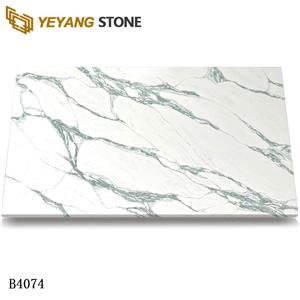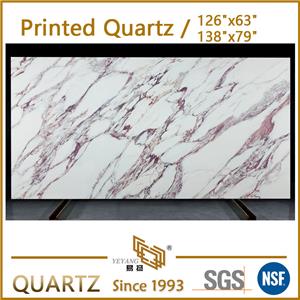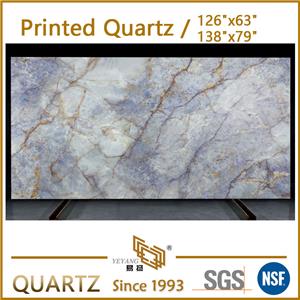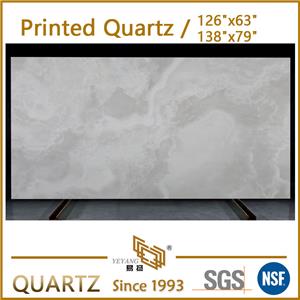Quartz and Granite: Which One is More Durable?
Quartz and Granite: Which One is More Durable?
When it comes to choosing between Quartz stone and Granite, durability is one of the biggest deciding factors. Both materials are strong, stylish, and widely used in countertops, yet their performance differs in ways that matter for daily living. Let’s compare them in terms of quartz hardness, resistance, and care.
Quartz
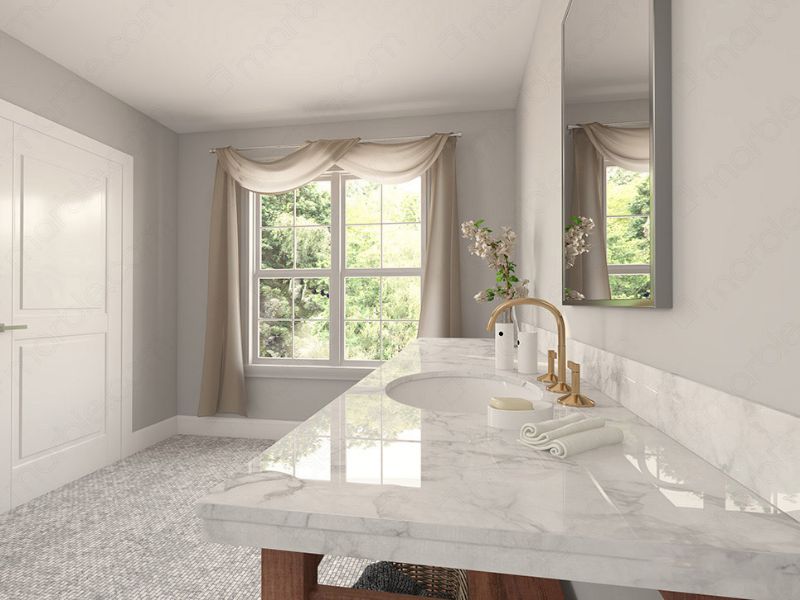
1. Definition and Composition
Quartz is an engineered quartz surface made from about 90% natural quartz minerals and 10% resins and pigments. This combination delivers durability along with consistent colors and patterns that appeal to modern design.
2. Hardness
On the Mohs hardness scale, quartz ranks at 7, which makes it extremely resistant to scratches and everyday wear. This superior quartz hardness is one of its strongest advantages.
3. Resistance
Stain Resistance: Being non-porous, quartz does not absorb liquids and is highly stain-resistant. However, spills such as coffee, tea, or strong chemicals should still be cleaned quickly.
Scratch Resistance: Quartz can withstand most kitchen utensils, including knives, without showing scratches.
Heat Resistance: Quartz is less tolerant of high heat. Surfaces exposed to temperatures above 300°F (150°C) may discolor or burn. Trivets and pads are recommended.
4. Care
Quartz countertops are easy to maintain with mild soap and water. Unlike natural stone, quartz does not require sealing, waxing, or polishing
Granite
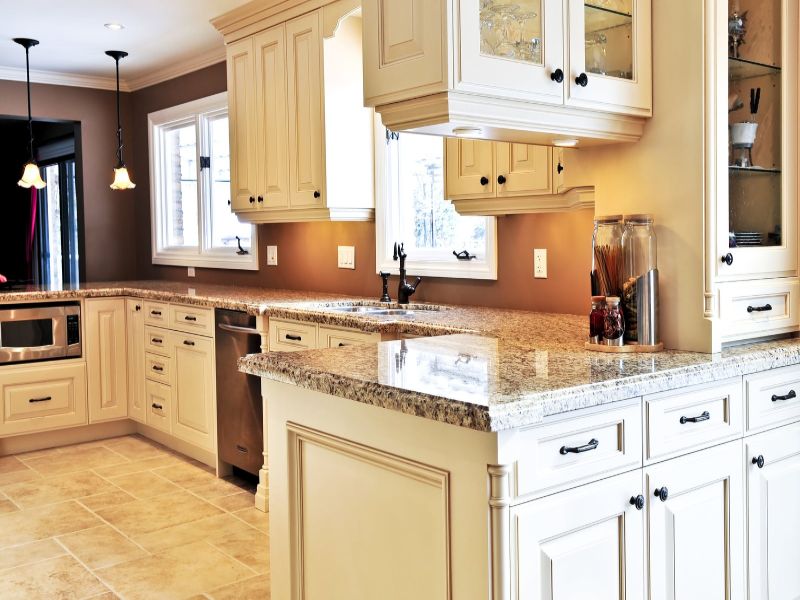
1. Definition and Composition
Granite is a natural stone, formed from cooled magma and composed primarily of quartz, feldspar, and other minerals. Each slab is unique, with natural veining and variations.
2. Hardness
Granite typically scores 6 on the Mohs scale, sometimes reaching 7 in harder varieties. While slightly lower than quartz, granite durability still makes it a reliable choice for high-traffic areas.
3. Resistance
Stain Resistance: Granite is porous and requires sealing to prevent stains. Without sealing, liquids can penetrate and cause discoloration.
Scratch Resistance: Granite resists scratches well, though it is marginally softer than quartz.
Heat Resistance: Granite is highly heat-resistant, withstanding up to 480°F, making it excellent for handling hot cookware directly.
4. Care
Granite should be cleaned with mild soap and water, avoiding harsh chemicals. Unlike quartz, granite needs sealing every 6–12 months to maintain its resistance to stains.
Comparison between Quartz and Granite
| Feature | Quartz (Engineered Quartz) | Granite (Natural Stone) |
|---|---|---|
| Hardness | Mohs 7 (quartz hardness) | Mohs 6 (slightly lower) |
| Stain Resistance | Non-porous, stain-resistant | Requires sealing, otherwise absorbs liquids |
| Scratch Resistance | Excellent, very hard surface | Good, but not as strong as quartz |
| Heat Resistance | Sensitive above 300°F, needs trivets | Resistant up to 480°F or higher |
| Care | Easy cleaning, no sealing required | Needs sealing every 6–12 months |
Conclusion
In the comparison of Quartz and Granite, both materials are durable and stylish choices. Quartz stands out for its higher hardness, minimal maintenance, and modern consistency, while granite excels in natural durability and heat resistance. The best option depends on whether you prefer the low-maintenance strength of engineered quartz or the timeless resilience of natural stone.
👉 Looking for premium quartz slabs for your next project? Contact us today to explore our collection of high-quality engineered quartz surfaces.

